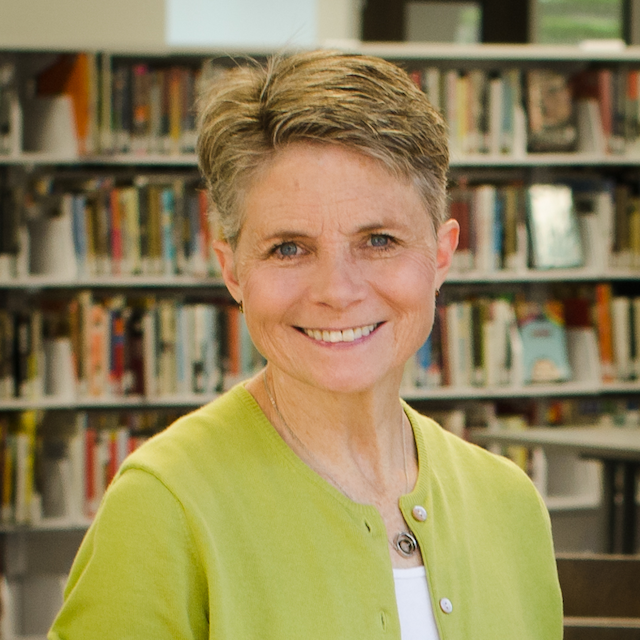Keynote Speech 1


Dr. Anjli Doshi-Gandhi
Former Deputy Director General of the National Population and Family Development Board Malaysia
Ministry of Women
Family and Community Development
Families face many challenges as a consequence of the changes in their structure and dynamics, rural-urban migration, the increase in the proportion of nuclear families, the need to balance family and career, family relationships and changing lifestyles. In addition to this, the impact of the Covid-19 pandemic on families and society has been immense. Many families have been overwhelmed with numerous unprecedented challenges such as financial problems, unemployment, stress and mental health issues, working from home, the new demands of having children at home due to school and child care closures, social and psychological isolation, as well as parenting stress and marital issues. However, some families have been able to spend more quality and quantity time, have enhanced family bonding, sharing of responsibilities and have better family well-being.
Realizing that the well-being of the family is the primary goal in the development of the country, the National Population and Family Development Board (NPFDB), an agency pioneered the development of the Malaysian Family Well-being (FWB) Index. Taking into cognizance that family well-being is a multi-dimensional concept that encompasses various aspects of the living conditions and wellbeing of families, the FWB Index (2011) consisted of seven domains; Family Functioning, Economy, Health, Safety, Community, Religion and Spirituality, and Housing and Environment and 23 indicators. The Malaysian Family Well-being Index (2011) score was 7.55 out of 10, indicating that Malaysian families have a moderately high level of well-being and are able to manage the challenges of development.
The Family Well-Being Index Data is collected periodically to enable the monitoring of the well-being of families and to provide directions for the development of family-friendly interventions. Hence, the 2nd FWB Index was conducted in 2016 and it consisted of 1 new domain, that is, family and communication technology. The 2nd FWB Index score was 7.33 out of 10.
In conclusion, family well-being indicators can guide the development of new initiatives besides improving the design of existing policies and programs that impact families. Currently, there is an urgent need for more research on the impact of the Covid-19 pandemic on family well- being.
Anjli Doshi (Ph.D) was formerly the Deputy Director General (Policy) of the National Population and Family Development Board Malaysia, Ministry of Women, Family and Community Development, Malaysia. Her key work responsibilities included the development of family development training modules, policy planning, development and implementation, family development initiatives and programs on parenting and reproductive health, social and family research, advocacy, and training. She has a Masters of Science (Family Development and Parenting) from University Putra Malaysia and a PhD in Family Ecology. Her PhD thesis was on “Family Functioning and Child Well-Being in Single Mother Families: The Influence of Risk and Protective Factors”. She has been directly involved in pioneering the conceptualization and development of the Malaysian Family Well-Being Index, formulation of the National Family Policy and Plan of Action, Malaysian Population and Family Survey and The Population Strategic Plan. She is also one of the writers for the SMARTSTART Pre-marriage Program, Fathering, Adolescent Wellbeing, Parenting@Work and Grand-parenting modules. She has presented many papers at the national and international level. She was a member of The International Executive Board of Advisors for The World Family Map Project (WFMP) from 2010 to 2015. . In 2017, she was appointed as a member of the Regional Family Focal Point Task Force by the World Family Organisation. In 2015, Dr. Anjli Doshi was given the World Family Award by the World Family Organisation for her contribution to the development and wellbeing of Malaysian Families. Dr Anjli received a special excellent service award in 2012 and 2017. She has also received an award from Power Malaysia called the “ Malaysian Indian Women Star Award in recognition of her outstanding achievement in the civil service sector” in 2012 which was presented by the Wife of the Prime Minister.
Keynote Speech 2


Susan Walker
Associate Professor
Department of Family Social Science
University of Minnesota
United States
As we look to the future, an information and communications technology (ICT)-rich society continues to shape family well-being. As family professionals it is essential that we understand what those impacts are and how best to support families to ensure that all families thrive. Foremost is understanding technology access as an equity issue and advocating for resources and training that put families on a level playing field. It is critical that we address the ways that ICT can promote development, maintain strong families, and support parenting. That means advocating for contexts like work and schools to have family-first values in their ICT use. And finally, and perhaps most critically, we must care for ourselves as professionals. As the ‘technology revolution’ takes place, we must be confident in our abilities to work with families in this new culture. That means knowing what we need to know, what technology integration skills are needed, and the policy and professional infrastructures that support us.
Susan Walker is an Associate Professor of Family Social Science at the University of Minnesota. Her PhD is in Child and Family Studies from the University of Wisconsin-Madison. For more than 35 years Susan has worked in the service of families, primarily in parenting education and early childhood care and policy. The current emphasis of her teaching and research is on technology use by families and the integration of technology in family education and is a pioneer in bridging the fields of education, technology and family life. Her innovation includes starting the Families and Technology Special Interest Group for the National Council on Family Relations, designing and teaching the course, Families and Technology – one of the very few such courses in the US, and with funding from the National Science Foundation, creating the platform parentopia, that maintains parent learning through community and peer-professional relationships facilitated by face to face programs. Research on the platform and with professionals has opened up insights into how parents learn in communities and the needs for technology support to family professionals. For 10 years Dr. Walker directed the licensed Parent and Family Education teacher preparation and Masters of Education graduate program at the University of Minnesota, Her awards span her teaching, research and service, and her commitment to families extends to practice around the world. In addition to international conference presentations, she was a guest professor and consultant on graduate family education for the University of Iceland, was selected to prepare a background report on digital well-being and the family for the United Nations.
Keynote Speech 3


Chien-Jen Chen, Sc.D., Ph.D.
Academician and Distinguished Research Fellow
Genomics Research Center, Academia Sinica
The 14th Vice President of the Republic of China (Taiwan)
Former Minister of National Science Council (2006-2008)
Former Minister of Department of Health (2003-2005)
The pandemic of COVID-19 have caused over 125 million confirmed cases and over 2.8 million deaths by the end of March 2021. It has also resulted in economic recession, social instability and retarded sustainability in almost all countries. Taiwan has been ranked as the top country with lowest COVID-19 mortality and lowest economic recession. Key elements of Taiwan’s successful containment of COVID-19 include prudent action, rapid response, early deployment, transparency, public trust and civil solidarity. There is no city lockdown or mass screening in Taiwan. Precision tracing is executed to identify and test close contacts of confirmed cases. Care and support services are provided to all close contacts and inbound passengers, who are isolated in a single room at home or quarantine hotels for 14 days. Special assistance and financial aid are provided to families of confirmed cases and low-income families. School children and the community elderly in day-care centers are well educated on personal hygiene practice and social distancing. Stringent infection control program has been implemented in nursing homes and hospitals. Information and communication technology, artificial intelligence and big data analysis are used for epidemic prevention, financial relief and economic stimulus. The elderly has a high priority for COVID-19 immunization. Family support plays an important role in the pandemic containment, and supporting families is essential for the successful containment.
Prof. Chen, Chien-Jen received his Sc.D. in epidemiology and human genetics from the Johns Hopkins University (1983). He then worked as an associate professor (1983-1986) and professor (1986-2006) of National Taiwan University. He was appointed as the director of Graduate Institute of Public Health (1993-1994), founding director of Graduate Institute of Epidemiology (1994-1997), and dean of College of Public Health in National Taiwan University (1999-2002). He became a distinguished research fellow of Genomics Research Center of Academia Sinica (2006-2015), and was appointed as a vice president of the academy. He was appointed as the Minister of Department of Health (2003-2005) and Minister of National Science Council (2006-2008). He was elected as the 14th Vice President of the Republic of China (Taiwan). He is now a distinguished research fellow of Genomics Research Center, Academia Sinica.
Prof. Chen has dedicated himself to molecular and genomic epidemiological research on chronic arsenic poisoning and virus-induced cancers over 35 years. His discoveries of multiple health hazards of arsenic in drinking water has led to the global awareness and prevention of the largest environmental calamity, and his research on end-stage liver disease risk prediction of chronic hepatitis B has pioneered the viral load paradigm in its clinical management. He has published over 730 scientific articles and over 75 books/chapters, which have been cited for over 85,000 times with an H-index over 135 (Google Scholar).
Prof. Chen has received many awards including Presidential Science Prize, the most prestigious science award in Taiwan. He was elected as an academician of Academia Sinica, a member of World Academy of Sciences, and a Foreign Associate (international member) of US National Academy of Sciences.
